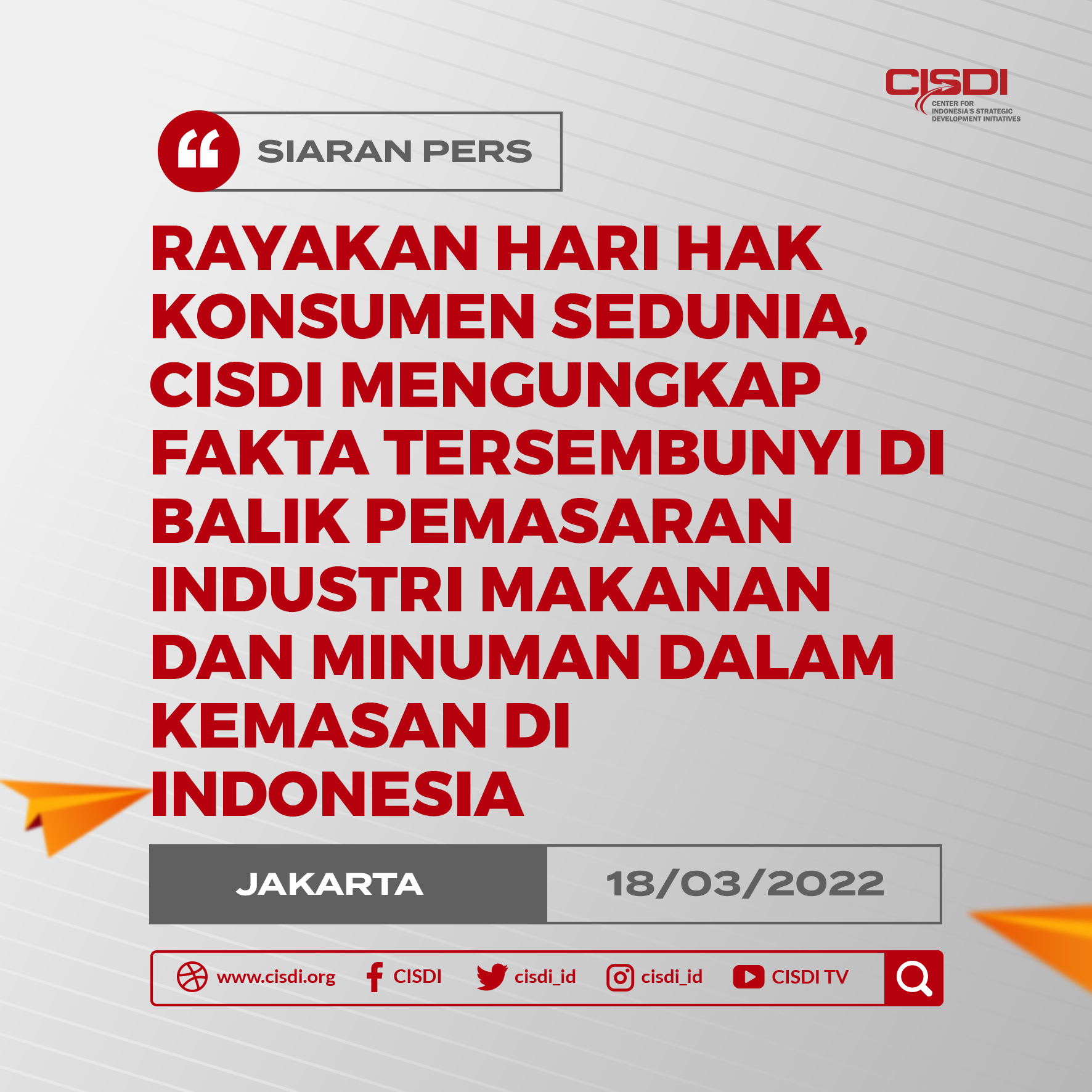
Press Release
The Dark Side of SSB Marketing Campaign, Bringing Children at Risk
CISDI Secretariat • 17 Mar 2022
Indonesia’s future health is highly determined by current public consumption. Thus, consumers must be protected from unhealthy food and beverage marketing practices and need to be given clear and accurate information when consuming products to maintain their safety. It can be started by implementing an excise tax on sugar-sweetened beverages (SSB).
This concern was expressed in the Twitter Space virtual discussion "Sweet Talk: Deception of the Packaged Food and Beverage Industry" on Friday (18/3) which was held by the Center for Indonesia's Strategic Development Initiatives (CISDI) to commemorate World Consumer Rights Day March 15.
CISDI's Food Policy Project Lead, Ayu Ariyanti, stated that this discussion departed from the massive practice of marketing the food and beverage industry in all media without time limits and often targeting groups of children. "Children will tend to consume more unhealthy food and drinks along with the many promotional advertisements they see," said Ayu.
For the record, the SSB consumption rate in Indonesia is quite high. At least 62% of children and 72% of adolescents consume SSB weekly (Laksmi et.al, 2018). A comparative study of unhealthy food advertisements in several big cities in various countries shows that children in Yogyakarta are exposed to unhealthy food and beverage promotion advertisements every 4 minutes (Kelly et al, 2016). This level of exposure was much higher than that of the children living in Kuala Lumpur, Shanghai, and Seoul.
"SSB consumption in Indonesia is already in an emergency situation. This is closely related to the increase in the prevalence of obesity and diabetes by up to 2 times in a decade. Thus, strengthening public awareness becomes joint homework. The government, as the front guard, needs to oversee concrete steps to protect public health in the future," Ayu added.
In this discussion, CISDI also invited a member of the YLKI Daily Management, Tubagus Haryo Karbyanto, who raised the issue of protecting consumer rights by the state. He emphasized that the marketing practices of the food and beverage industry which glorify products without warning of the effects of long-term consumption have the potential to violate consumers' rights to true and accurate information. “The government must make policies that can protect consumers from this potential violation with comprehensive consumption control instruments," said Tubagus.
An example of a promotional trick used by the industry to make their products look healthier is to write nutritional value information based on serving suggestions, not the content per package, even though one package contains more than one serving. This causes people to think that the content of sugar, salt and fat in these products is not too much. In addition, claims such as "sugar-free" or "non-cholesterol" that make food or beverage products sound healthier also need to be reconfirmed through the nutritional value and composition information labels.
The basis of behavioral science and its relationship with unhealthy food and drink choices was also explained by the Co-founder of AdvisLab, Choky Ramadhan. According to him, humans are irrational creatures and have many considerations before making a decision. "In addition to excise duty, consumers can be directed to choose healthier products by making access to packaged food and drinks difficult to obtain, enlarge the display area for fruits and vegetables, and display information regarding calories more clearly," he added.
Concluding this discussion, CISDI reiterated that last year's Ministry of Finance's initiative regarding the proposed implementation of the SSB excise tax was realized immediately in order to control product consumption and strengthen the health of the Indonesian people. as an effort to control the consumption of products that have a negative impact on health.
.png)